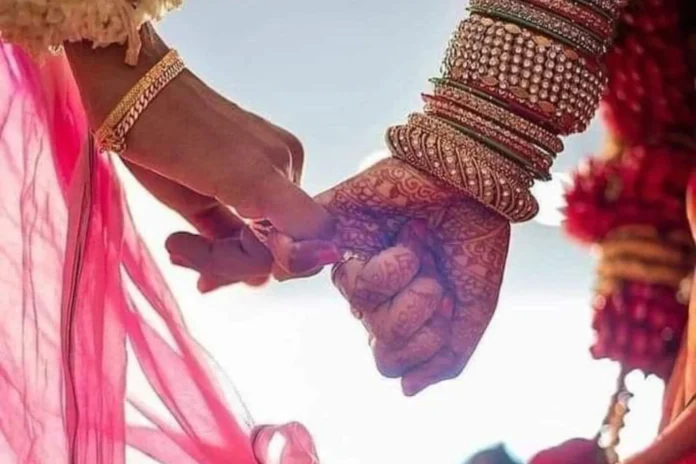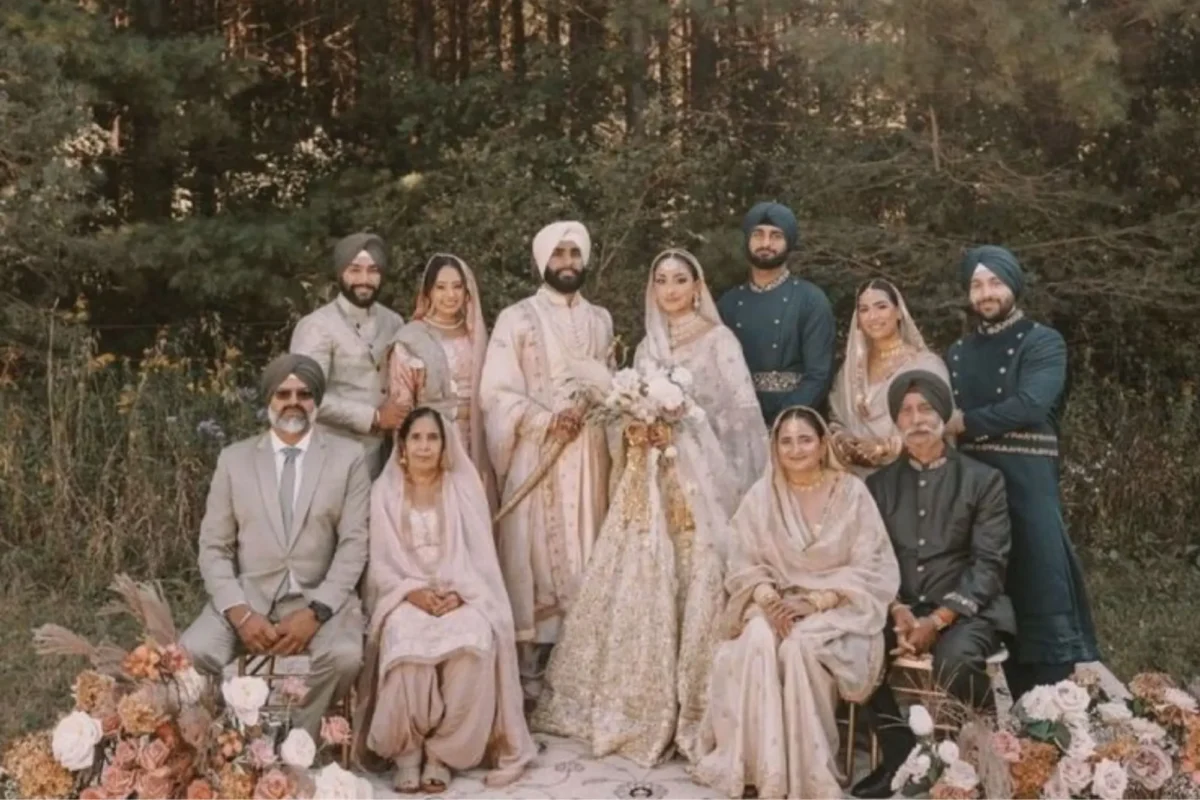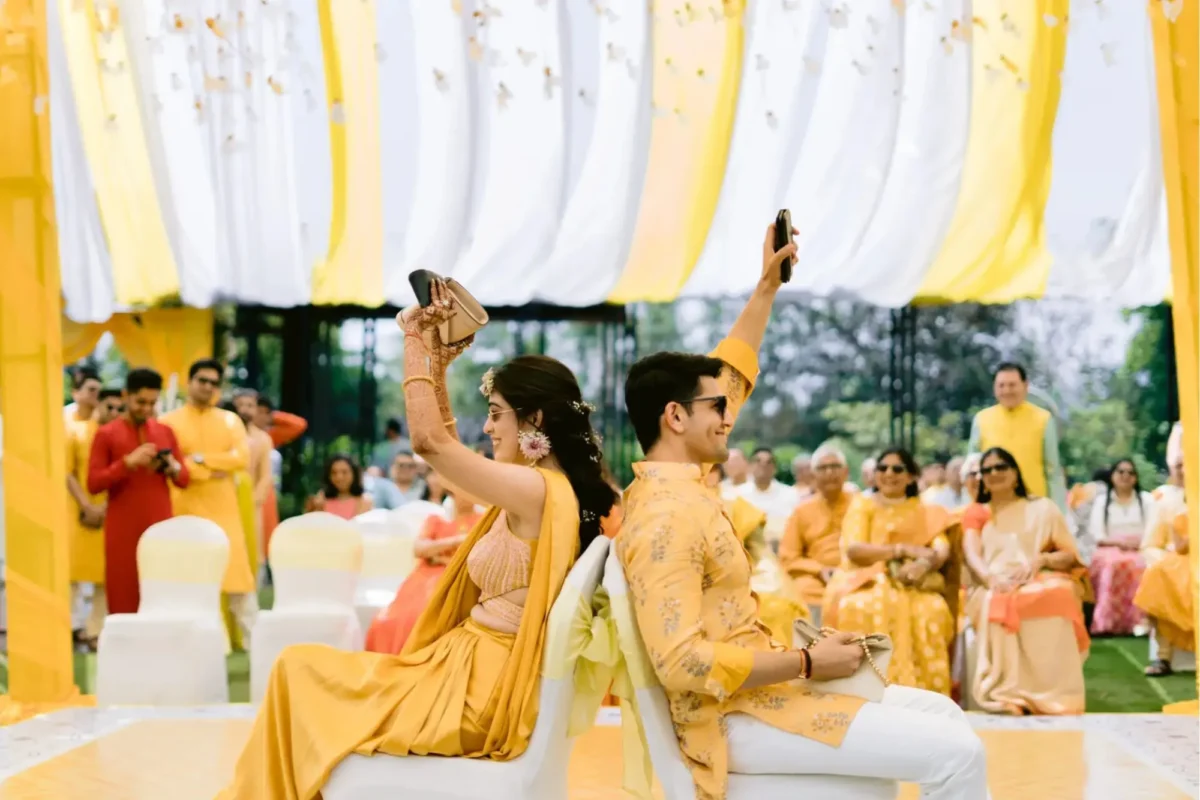Wedding planning is hectic, and it is common to make mistakes. But this expert-backed list will help you avoid some crucial ones and have a smooth sailing.
Weddings are grand, emotional, and once-in-a-lifetime events. But behind the shimmering lights, dreamy décor, and beautifully choreographed celebrations lies a timeline that must be managed with precision. One of the biggest reasons couples feel stressed during wedding planning isn’t just budget or décor decisions; it’s timing. A wedding is like a symphony: every detail, every person, and every function must fall into place at the right moment. When timelines are ignored or poorly managed, chaos creeps in.
Talking to experts, Team Wedding Affair has listed some of the most common timing mistakes you should avoid while wedding planning, to ensure your special day unfolds seamlessly.
Starting the Planning Too Late
The most common error couples make is underestimating how much time wedding planning requires. Waiting until the last few months to begin looking for venues, photographers, or designers can backfire. High-demand vendors are often booked months, sometimes years, in advance. By delaying, you’re left with fewer options and higher prices.
The ideal timeline for booking a venue is at least 9–12 months before the big day. Outfits, photographers, and caterers should follow closely after. Starting early not only ensures you get your dream choices but also allows breathing space for corrections if something doesn’t go as planned.
Read Also: The Ultimate Wedding Planning Timeline
Overlooking Seasonal Considerations
Timing isn’t just about days and months; it’s also about seasons. Many couples forget to factor in weather, peak wedding months, and even local festivities. For example, peak winter wedding season is notorious for traffic jams, venue shortages, and increased vendor costs. Similarly, summer weddings bring challenges of heat and humidity, which can affect outdoor events and the comfort of guests.
Locking in dates without considering these elements may leave you grappling with logistical nightmares. A little foresight, like planning for shaded setups during summer or arranging cosy indoor functions during winter, can save the day.
Rushing Through Invitation Timelines
Sending out invitations is often left to the last minute, especially in the frenzy of outfit trials and décor decisions. This is a mistake. Guests need time to RSVP, book travel, and adjust schedules. A good rule of thumb is to send save-the-date notes three to four months prior, followed by formal invitations at least six to eight weeks before the wedding.
Delays in sending invites risk low turnout, especially for out-of-town guests. Also, rushing the printing process at the last moment can lead to errors in names, dates, or even the venue details; mistakes you’ll regret later.
Leaving Outfit Trials Too Late
Wedding outfits are rarely ready in one fitting. Alterations, embroidery finishes, or last-minute style adjustments take time. Many brides and grooms make the mistake of pushing outfit trials close to the wedding week. The result? Alterations that feel rushed, ill-fitting attire, or worse—outfits that don’t arrive on time.
Plan outfit shopping at least 6–8 months ahead, especially for custom designs. Ensure all trials and fittings are completed at least 2–3 weeks before the functions, leaving enough buffer for unexpected fixes.
Underestimating Vendor Coordination Time
Photographers, makeup artists, florists, caterers—everyone plays a crucial role in your celebration. But they all need time to align with your vision. Couples often think one meeting is enough, only to discover conflicts on the day of the event.
Schedule multiple check-ins with your key vendors. Share clear timelines for when each vendor is needed, like the precise moment makeup should start, or when décor needs to be ready. This prevents overlaps and ensures smooth execution.
Read Also: The Ultimate Guide to Planning a Wedding Dessert Menu
Last-Minute Décor Decisions
Décor is one of the most important aspects of wedding planning, yet couples sometimes leave it to the final weeks. The danger with this approach is that you may not get the flowers, fabrics, or props you envisioned, especially during peak season. Vendors may also charge a premium for rushed requests.
Ideally, décor themes and setups should be locked at least 3–4 months in advance. This gives vendors time to source the right materials and allows you to review mock setups or mood boards instead of blindly trusting last-minute fixes.
Ignoring Buffer Time in the Wedding Day Schedule
On the wedding day itself, timing becomes even more critical. A common mistake is packing the itinerary too tightly, without accounting for natural delays, like guests arriving late, hair and makeup taking longer, or traffic between venues.
For instance, if you schedule the baraat, pheras, and dinner back-to-back without breathing space, you’ll be rushing through the day rather than enjoying it. Build at least 15–20 minutes of buffer time between events to accommodate small delays without derailing the entire schedule.
Not Factoring Travel Time Between Venues
Many couples book multiple venues for different functions without properly considering the travel time between them. This can lead to exhausted guests, delays in rituals, and unnecessary stress.
Always factor in real-time traffic conditions while planning. A venue that looks 20 minutes away on paper might take an hour during peak hours. Share clear schedules with guests and vendors, and if possible, arrange transportation to ensure everyone arrives on time.
Delaying Guest Accommodation Bookings
Guest comfort is central to a smooth wedding experience and a big part of wedding planning. But accommodation often becomes an afterthought. Waiting too long to block rooms for guests can result in limited availability and skyrocketing rates, particularly in popular wedding hubs.
Book hotel blocks as soon as your dates are confirmed. This ensures your guests have easy access to the wedding venues and allows you to negotiate better group deals.
Pushing Photography Discussions to the End
Beautiful memories require a part in wedding planning too. Couples often assume photographers will “just know” what to capture, but this leads to missed moments. Waiting until the last minute to discuss shot lists, family portraits, or special requests is a recipe for disappointment.
Schedule detailed discussions with your photographer weeks in advance. Share your must-have shots, from candid behind-the-scenes moments to traditional family portraits, so nothing slips through the cracks.
Read Also: Your Ultimate Wedding Photography Shot List Guide
Avoiding these timing mistakes while planning your wedding doesn’t mean obsessing over every minute detail. It means creating a thoughtful roadmap that allows for flexibility, fun, and flow. After all, weddings are about celebrating love, and the best way to do that is by giving yourself the gift of time.
Subscribe to Wedding Affair for more such content.








